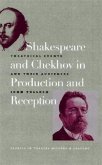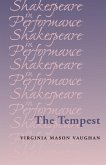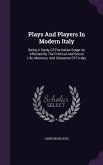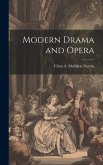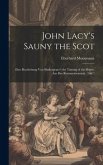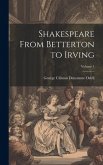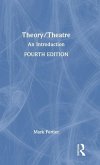This book examines Brecht's theory and method of adaptation. It first reconstructs it into a single framework using four key Brechtian concepts: Fabel, gestus, estrangement effects, and historicizing. It then uses that framework to analyse four Brechtian adaptations: The Tutor, Don Juan, "Socrates Wounded," and Kriegsfibel. It argues that adaptation occupies a previously unrealised central place in Brecht's thought, demonstrating that he provides us with a unique way to think about adaptation--as material transformation. It concludes by describing how Brecht is useful for anti-capitalist aesthetics today because through him one can foster a new consciousness which enables better social conditions to be created. This book is practical for both theatre practitioners and artists as well as theorists.
Bitte wählen Sie Ihr Anliegen aus.
Rechnungen
Retourenschein anfordern
Bestellstatus
Storno


